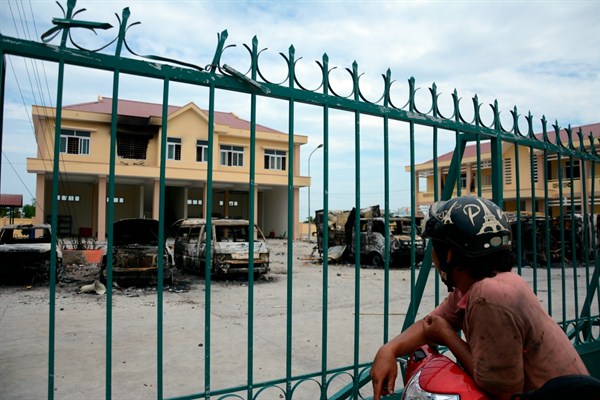Last month, nationwide protests laced with anti-Chinese sentiment erupted in Vietnam in response to the government’s plans to offer long-term foreign leases in three special economic zones. More than 100 people were arrested in the demonstrations, which once again exposed a fundamental challenge for the Communist Party of Vietnam in managing public opinion over its relationship with China.
This is hardly a new issue for Vietnam. Its giant northern neighbor dominated it for nearly a millennium of imperial Chinese rule, and they have fought multiple wars in more recent centuries. Given that long, contested history, along with its proximity to China and the vast asymmetry of its capabilities relative to Beijing, Vietnam has for years pursued balanced engagement, recognizing the threats and opportunities from Beijing. But Vietnamese popular sentiment is fiercely anti-Chinese, and polls indicate that China’s unpopularity there is unrivaled among other Asian states.
But public discontent with China has become a bigger headache for the Communist Party of Vietnam over the past few years. On the security side, China’s growing assertiveness, most clearly evident in the territorial disputes in the South China Sea, has intensified anti-Chinese attitudes in Vietnam. Though the Vietnamese government has no doubt undertaken its own efforts at home to boost popular support for its maritime claims, Beijing’s behavior nonetheless complicates how Hanoi manages popular perceptions. The deadly protests that erupted back in 2014 in response to China’s positioning of an oil rig within Vietnamese waters was a case in point.

